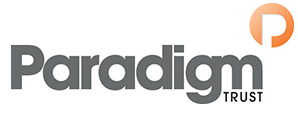How do teachers match the curriculum to an individual pupil’s needs?
At Paradigm Trust schools all of the teachers teach using a ‘rubric’ which sets out how every lesson is taught. Some examples of how teachers differentiate are:
- using focused questions
- directly supporting pupils in groups
- repeating instructions and information regularly
- breaking instructions and information into manageable chunks
- giving pupils materials (concrete apparatus) that they can use to help them when they are learning
- scaffolding (supporting) pupils’ answers and responses (for example giving them sentences openings)
- using SEND TAs to support specific groups or individual pupils.
Delayed language development as a consequence of hearing impairment means that lessons often need to be differentiated. This is addressed by pre-teaching and general language enrichment activities and by support from a specialist teaching assistant in lessons using additional resources when appropriate.
Teachers who work in the deaf support base (DSB) are teachers of the deaf, which means they have additional, specialist training. Teachers of the deaf work with mainstream teachers to plan DSB pupils’ learning and monitor their progress. The curriculum is made more accessible for the DSB pupils and they have additional lessons in developing listening skills and using specialist equipment. Culloden Primary works closely with specialist speech therapy and audiology services to secure the best possible outcomes for the DSB pupils. Culloden is purpose built with additional teaching rooms which create optimum listening conditions for small group teaching. The DSB pupils’ ability to take part in mainstream lessons is enhanced by the use of radio aid systems, which provide access to the teacher’s voice in all classrooms.
